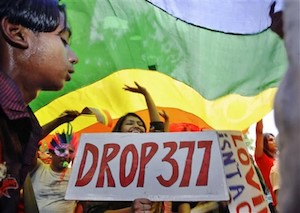
Gay Rights (India). Lesbian, gay, bisexual, and transgender (LGBT) rights in India have expanded in the 21st century, though much of India’s advancements on LGBT rights have come from the judiciary and not the legislature. Indian LGBT citizens still face social and legal difficulties not experienced by non-LGBT people.
There are no legal restrictions against gay sex or gay expression. Same-sex couples have some equal cohabitation rights, colloquially known as live-in relationships.[5][6] However, India does not currently provide for common law marriages, same-sex marriage, civil unions, guardianship or issue partnership certificates.
The Transgender Persons (Protection of Rights) Act, 2019 recognizes the right to self-perceived gender identity, and new identification documents confirming the change of gender can be issued by government agencies once a certificate is provided by a relevant medical official. Transgender citizens have a constitutional right to register themselves under a third gender.
Additionally, some states protect hijras, a traditional third gender population in South Asia through housing programs, and offer welfare benefits, pension schemes, free operations in government hospitals as well as other programs designed to assist them. There are approximately 480,000 transgender people in India as per Census 2011.
See: India’s LGBTQIA+ Community Notches Legal Wins but Still faces Societal Hurdles to Acceptance, Equal Rights (May 17, 2024)